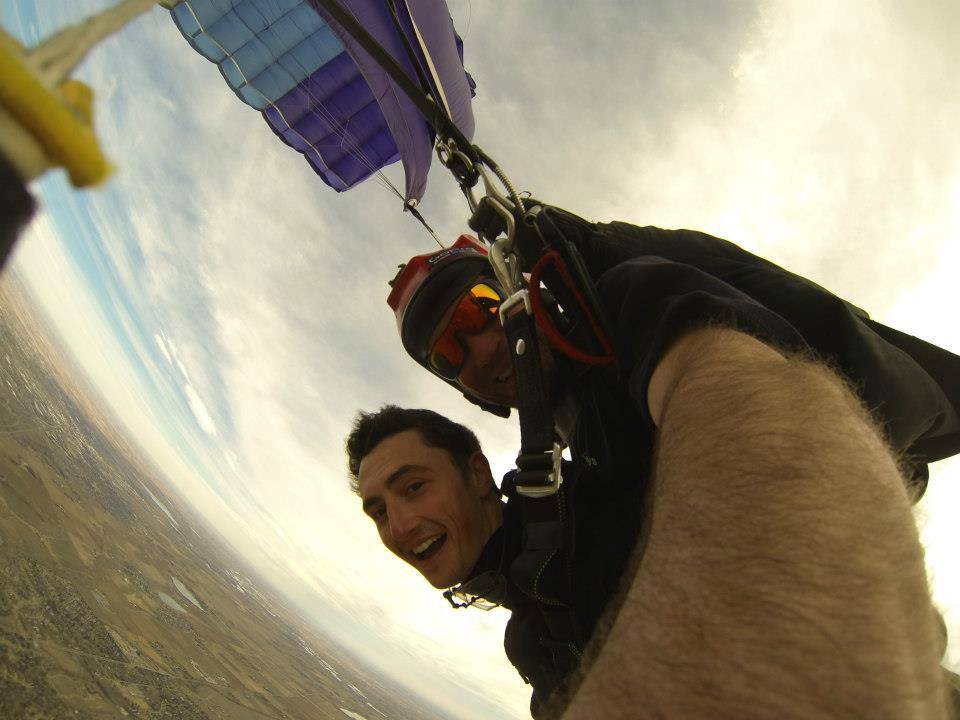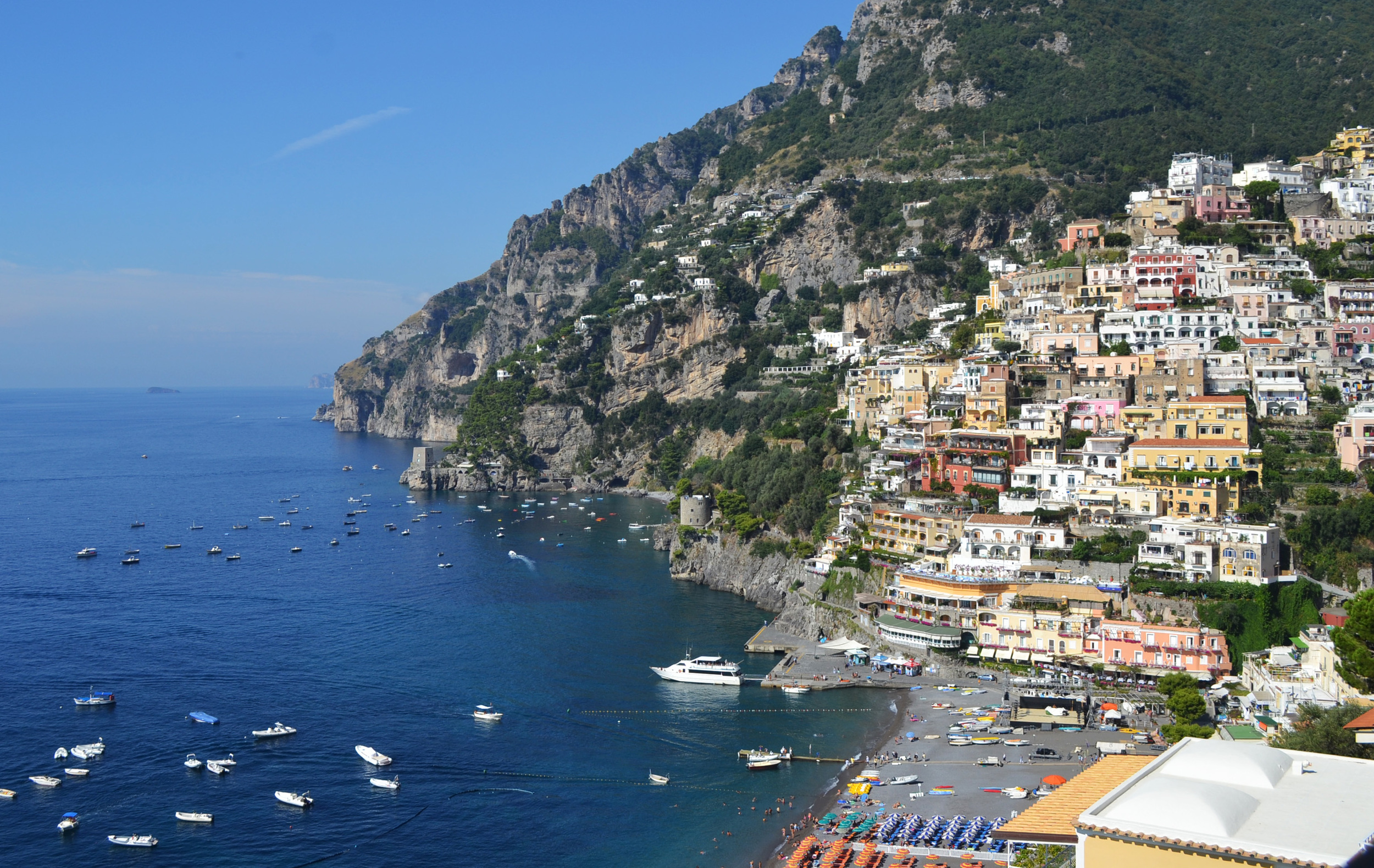 Never did I ever think I'd travel on my own somewhere, by myself, in a foreign country, for fun. Though I had a great travel opportunity come up for work where I'd be able to make my flight dates flexible and could travel on my own before/after. This was a last-minute gig, so friends or family weren't able to join me because of jobs, expensive flights, etc.
Never did I ever think I'd travel on my own somewhere, by myself, in a foreign country, for fun. Though I had a great travel opportunity come up for work where I'd be able to make my flight dates flexible and could travel on my own before/after. This was a last-minute gig, so friends or family weren't able to join me because of jobs, expensive flights, etc.
I didn't let that stop me. I knew that if I wanted to do some extra travel, I'd have to travel solo.
Originally I was looking into planning a couple weeks in the Balkans/Southeast Europe: Romania-Bulgaria-Bosnia & Herzegovina-Croatia-Slovenia. That would've been too expensive at the time. Then I looked into Portugal-Spain-France-Belgium-Netherlands. That was too expensive too. So I settled for a weekend in Paris, and I'm glad I did. It was my first visit to the city, it held a high spot on my bucket list, and according to my research it was considered very safe for tourists.
Even though I was a little overwhelmed before I flew out of the airport, I felt more confident than I had in previous trips abroad. I was a little nervous to be all "alone" and by myself, but I had a feeling that it would be worth it. And it was!
I questioned a few things before I left, because I was nervous - traveling by myself was way out of my comfort zone. Here are the questions I had before I left, and my answers now that it's over:

1. How do I get photos of myself if I'm not with someone to take it for me?
The best way is to just ask! There were plenty of tourists in Paris, and especially if you're at a touristy spot (like the Eiffel Tower, The Louvre, etc.) there will be tourists taking photos. Sometimes you'll see a group of people attempting to take a selfie - this is the perfect opportunity to offer to take a photo of them, and then you can ask them to return the favor to get a photo of you. Win-win!

2. Should I eat at restaurants alone?
To be honest, I barely ate in Paris. Haha! This was the first leg of my trip and the jet lag made me really nauseous, and food was not appetizing at all. I was also major budgeting because I had two weeks of travel ahead, plus I was moving when I got back to the States. I ate at a couple cafes by myself, and I was fine. Nobody gave me weird looks. I didn't feel embarrassed to be by myself or anything, since there were other people by themselves too. At one cafe the guy working there was excited to find out I was from Seattle, because Grey's Anatomy is his favorite show, and was asking me all kinds of questions. As far as nice restaurants though, I didn't experience any...because the food in Paris (well, most things in Paris) was so expensive!

3. Will I be safe walking by myself at night?
There was never a moment I didn't feel safe by myself in Paris, day or night. I will note that it was "high season" for tourists, as well as summer, so there were a ton of people out and about on the main streets. I didn't stray into any dark alleys, or anywhere that seemed "sketchy." I just kept confident and knew where I was going, avoided the scammers, and navigated easily. I was fine!
Wherever you go solo, make sure to do your research beforehand. I was fine walking by myself in Paris in the areas I was in, but in other areas (or other cities) I might have not been. If you're ever in doubt, find an area with a lot of people around or take a (legit) taxi.

4. What if I get lonely?
I only spent about 3 1/2 days solo before I met up with the staff I was working with for the rest of the trip, and with so many things to do, I never felt lonely. There were plenty of other people walking around, so I was rarely "alone." And I met new people - something I wouldn't have done, had I gone with a friend.

5. What if I get lost?
I've never had the best sense of direction, so when the hotel guy handed me a map and pointed the route on how to get to The Louvre, a wave of fear washed over me as I stepped out onto the streets for the first time. Surprisingly, I kept the map in my bag and navigated my way to The Louvre easily. Getting around Paris was much easier than I thought, and since I was by myself and actually paying attention, I had no trouble finding my way.
Having a physical map, a phone with GPS (download maps to use offline), and the address and phone number of your hotel/hostel/accommodations are always smart to have on hand in case you get lost. If you're still stuck, then it doesn't hurt to ask someone to point you in the right direction - most people are friendly and will be happy to help you out!







 There is nothing more beautiful or glamorous than hitting the beach on the Mediterranean. As an avid beach-goer whenever possible, I've had the opportunity to explore quite a few beaches on this lovely stretch of water surrounding Southern Europe. My top three destinations are listed below.
There is nothing more beautiful or glamorous than hitting the beach on the Mediterranean. As an avid beach-goer whenever possible, I've had the opportunity to explore quite a few beaches on this lovely stretch of water surrounding Southern Europe. My top three destinations are listed below. Cannes, France
Cannes, France place in the world?
place in the world?










